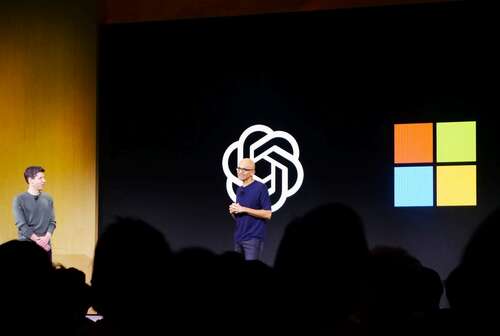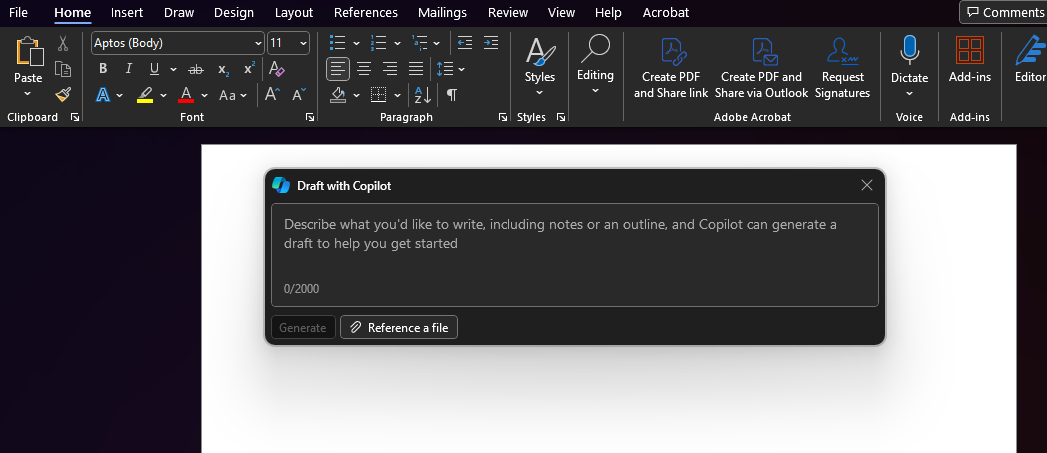
Microsoft’s new $20/month AI chatbot subscription, Copilot Pro, promises to give individual users priority access to the latest AI models, starting with OpenAI’s GPT-4 Turbo, along with AI integrations in Microsoft’s productivity suite that were previously reserved for business users.
The pricing is the same as OpenAI’s existing ChatGPT Plus subscription, with similar capabilities. This could cause some users to choose between the two services, illustrating the potential for the partners to compete over the long run.
But for now, there’s enough greenfield opportunity in AI that the two companies seem content to claim their own turf. Microsoft has invested billions of dollars in OpenAI and used its technology to significantly advance its own products.
In the case of Microsoft’s Copilot Pro, announced Monday, features include direct integration with Word, Excel, PowerPoint and other Microsoft 365 apps.
For subscribers, an outline of the Copilot icon appears to the left of the cursor at the beginning of a paragraph in Word, for example, bringing up a chatbot dialog box when clicked to help draft a document.

It’s an alternative to existing third-party Microsoft 365 integrations such as Ghostwriter from Seattle-area developer Patrick Husting, who introduced his initial integrations for Microsoft apps nearly a year ago.
Also on Monday, Microsoft released new Copilot mobile apps for Android and iOS, and expanded its separate Microsoft 365 Copilot service to small business users.
In addition, the company announced plans to offer Copilot GPTs, custom AI chatbots similar to the GPTs offered by OpenAI. Like ChatGPT Plus users, Copilot Pro users will be able to create GPTs as part of their subscriptions.
This question of how Microsoft and OpenAIs will compete has come up previously in the context of OpenAI and Microsoft both serving enterprise customers with similar technologies, derived at least in part from the same OpenAI technology. During a media Q&A at OpenAI’s DevDay on Nov. 6 in San Francisco, OpenAI CEO Sam Altman was asked how Microsoft and OpenAI were balancing these interests in the market for business AI technology.
“The answer is, we’re both going to do it. We set up the relationship between two of us so that we’re very happy when they succeed with a sale, and they’re very happy when we succeed with the sale,” Altman said at the time. “I’m a huge believer that incentives are superpowers. If you get everybody’s incentives right, everybody just wants the most shared success possible. And I think we’ve designed that very well.”

